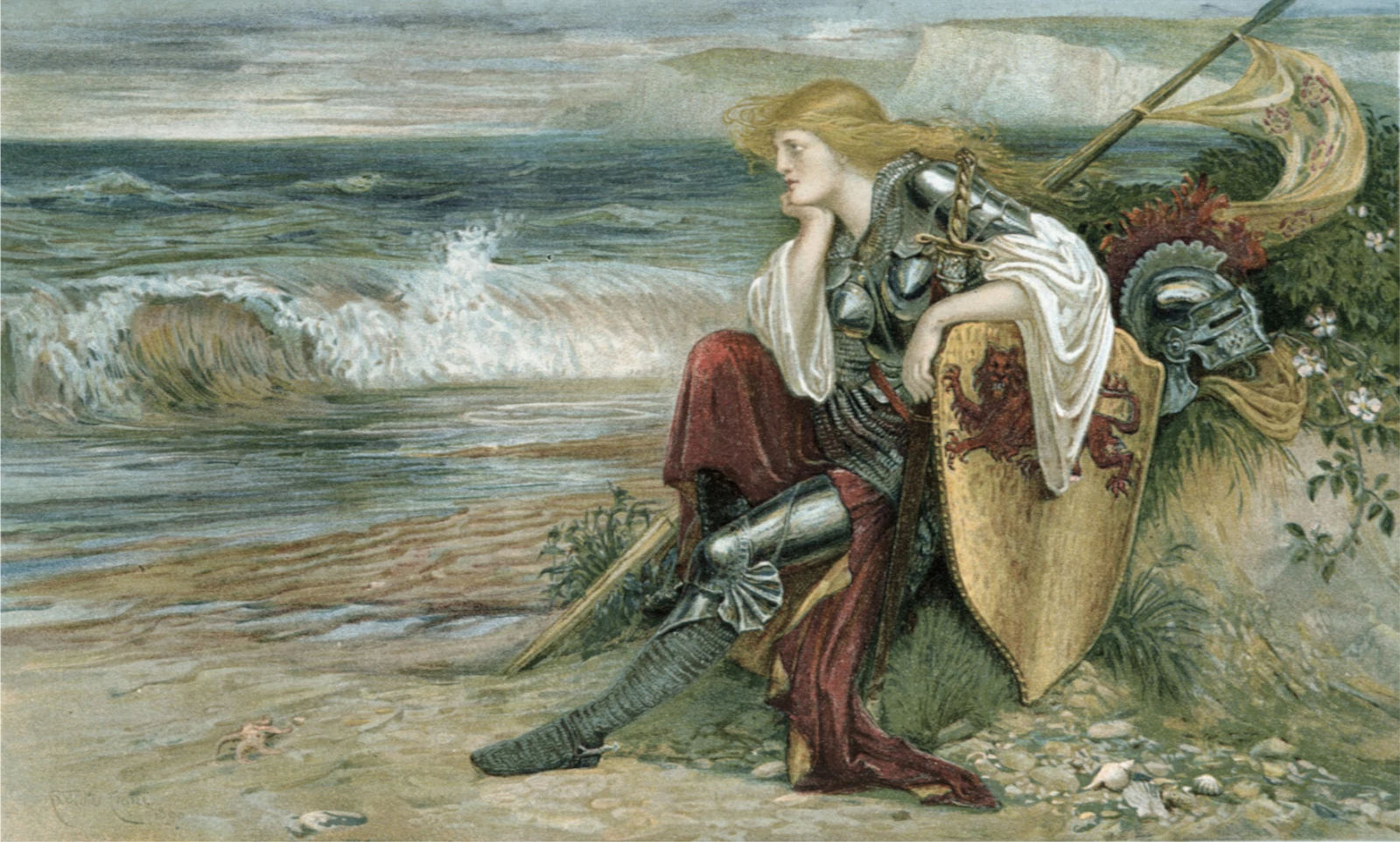
Ghost Gear
Words By Andrew McFadyen-Ketchum, Art By Walter Crane
Low tide, my father highsteps the trammel net, stoops
half-submerged in Tanaga Bay and begins the work
of disentangling another sockeye from the interlaced snares.
He stands before me now, the same foot shorter
he’s been the last ten years, my sister and I
nothing back then but a notion
when my father could hold his breath
well over a minute,
how or why I’ve learned not to ask, the familiar arc of his story
cast out like he, the newest member of the crew,
flung to the farthest edge of the intertidal.
I could hear better then, he adds.
Good thing, I always think. Otherwise,
he’d not have heard that thin cry of alarum from the beach. Otherwise,
he’d not have looked up from his work
to see the bellowing cord of the continental shelf
rise to obscure summer’s first dusk as if Britomartis herself—
goddess of fishermen—has half-risen from the sea
to encompass that final island of the Aleutians.
Dumbstruck, my father watches the wave suck in the tide
like a maw: his legs, Wranglers rolled to the knee,
for the first time exposed, the net an organism in and of itself,
a bare root system, salmon left clapping wet sand
as far as the eye can see a wave
the width of his vision charging the land.
My father claims that in such moments,
the body lightens.
My father claims that there, he saw himself
bird’s-eye view, that he watched himself look up at the sky
and the sky had become a mirror.
And he sees his body ascend the cumulus
as if pulled by threads of light, each thrust of the sky’s wide wings
lifting him ever closer to a rift in the clouds.
But my father does not kneel genuflect to the gods,
my father does not consider his sins or ask for forgiveness. Rather,
he gives his marrow to those ropes,
he weaves himself into those moorings.
And the last thing he sees is the wave.
And the last thing he hears is something like the clap of a thousand hands.
And the sea took him.
Language fails my father here, so he resorts to sound:
Wham!
slamming one open palm into the other as if to quash
something living, his posture surging in our living room—
the tumblings of his cliffhanger—
body whipped by the imagined sea.
How do I describe what seemed like hours beneath the waves?
I am a poet retelling a telling.
The sea did not care about my father,
But
the wave came and went and my father
held his ground, the backdraft strong in the wave’s wake—
Britomartis’ final tug for his spirit.
And he lashed the flesh of his life from that ocean.
And the water receded.
Now, my father lights up when he tells how he returned to the beach
as slowly as possible
and how, when the men finally saw him emerge from the sea,
they cheered his name, my father returned
from what they believed to be the dead:
Ghost gear, they call it:
nets and riggings lost at sea to fish for no man.
Blindly trolling seines illuminating the deep
with their bioluminescent catch.
Ruptured buoys and trammels coasting past coral reefs
until they drift down,
down into the dark.
Only once have I asked my father
why he chose out there to live. Only once
has he told me that as the wave approached,
he heard a voice.
And that voice asked him,
Are you a father?
And my father said,
Yes.